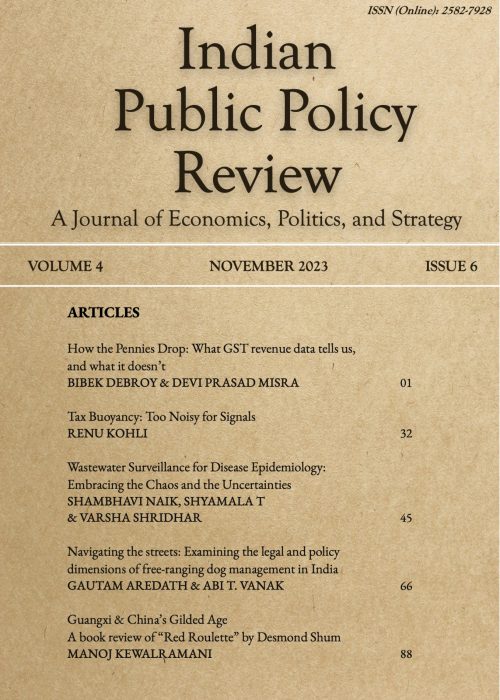Indian Public Policy Review | November 30, 2023
The Indian government’s approach to dog population management for the last two decades –the animal birth control (ABC) program –has yielded poor results. Aside from its implementation failures, the ABC is scientif ically unsuited to the scale and severityof the harms posed by free-ranging dogs. It is based on a def icient understanding of both animal behaviour and animal welfare. The Indian Supreme Court, which is hearing multiple petitions relating to the danger to human life and safety posed by India’s burgeoning population of free-ranging dogs, has issued interim orders that restrict alternative interventions such as long-term sheltering and euthanasia. While the legal dispute has meandered through the judicial system for more than a decade, the harms caused by free-ranging dogs continue unabated. Recent legislative changes, which encourage the maintenance of dogs on streets, have pushed government policy in a seemingly regressive pathway. This paper presents a critical discussion of the legal and policy position, and suggests integrated and contextual approaches for viable dog population management.







